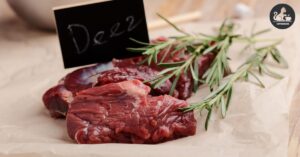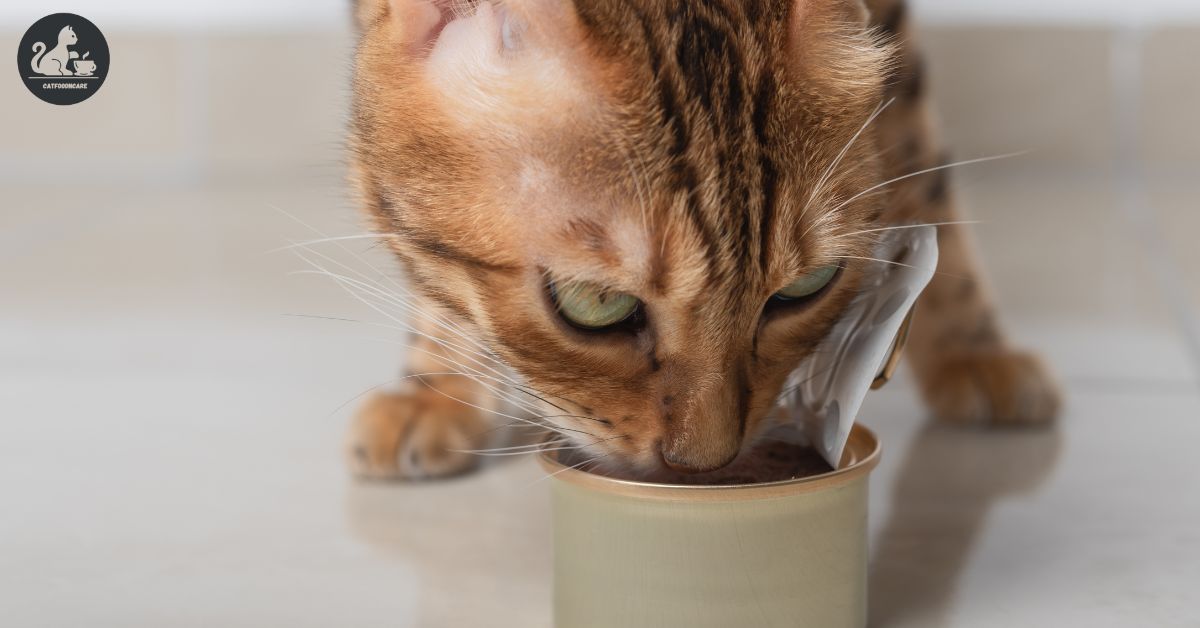If you’re a cat owner, you might be curious about what foods are safe for your feline friend to consume. One question that often comes up is: Can cats eat venison? The short answer is yes, cats can eat venison. This game meat is a high-quality source of protein and can provide many nutritional benefits. However, it’s important to remember that not all foods are suitable for all cats. Some may have food allergies or sensitivities, and venison, like any other type of meat, could potentially cause an adverse reaction.
Feeding your cat venison can be a healthy alternative to common proteins found in commercial cat foods, such as chicken or beef. Venison is a lean meat, which means it has a lower fat content. This can help your cat maintain a healthy weight. It’s also rich in essential amino acids and nutrients that are beneficial for your cat’s overall health, including their coat health.
However, it’s important to note that while venison can be a good source of nutrition, it should not replace a complete cat food diet. Cats have specific nutritional requirements that may not be met by venison alone. Therefore, venison should be considered an occasional treat rather than a staple in your cat’s diet.
Before introducing venison or any other new food into your cat’s diet, it’s always a good idea to consult with a vet. They can provide guidance on the appropriate amounts of food and ensure your cat’s nutritional needs are being met.
What Do Veterinarians Say about Feeding Venison to Cats?
Veterinarians often say that venison can be a good source of protein for cats. However, they also warn that feeding raw meat, like raw venison, to cats can come with risks. One of these risks is the risk of food poisoning from bacteria in the raw meat. Another risk is that raw meat might not provide all the essential nutrients cats need.

Venison can be a good choice for cats with food allergies. It’s an uncommon protein, so cats are less likely to be allergic to it than to more common proteins like chicken. However, some cats might still have food sensitivities or adverse reactions to venison.
If you want to feed venison to your cat, veterinarians recommend doing so as an occasional treat rather than a regular part of their diet. They also suggest making sure the venison is cooked to kill any harmful bacteria.
Venison can have health benefits for cats. It’s a lean meat, which can help cats maintain a healthy weight. It also contains essential amino acids and fatty acids that can support coat health.
However, venison should not be the only food your cat eats. Cats have specific nutritional requirements that might not be met by venison alone. It’s important to feed cats a balanced diet that includes a variety of foods.
while venison can be a healthy treat for cats, it should not replace a complete cat food diet. Always consult with a vet before making major changes to your cat’s diet.
Can Cats Eat Venison?
Yes, cats can eat venison. Venison, or deer meat, is a lean source of high-quality protein that can be beneficial for cats. It contains essential amino acids and essential nutrients that cats need for their overall health. However, it’s important to remember that venison should only be an occasional treat and not a regular part of your cat’s diet.
Venison can be included in a raw food diet for cats, but it’s crucial to ensure it’s properly prepared to avoid risk of food poisoning. Some cats might have food allergies or food sensitivities to venison, so it’s important to monitor your cat for any adverse reactions.
Venison is also a good alternative protein source for cats that are allergic to more common proteins like chicken. However, it’s always best to consult with a vet before changing your cat’s diet.
Remember, while venison can provide some nutritional benefits, it should not replace a complete cat food that meets all the nutritional requirements of your cat. Always ensure your cat has access to fresh water and monitor their cat weight to maintain a healthy weight.
Lastly, be careful to avoid cross-contamination when handling raw venison, as this can pose a risk to both you and your pet.
Nutritional Benefits of Venison for Cats?
Venison, or deer meat, can be a nutritious addition to your cat’s diet. Here are some benefits:
- High-Quality Protein: Venison is a lean meat and an excellent source of animal-based proteins. It provides essential amino acids that cats need for muscle development and maintenance.
- Low Fat Content: Compared to other common proteins like beef, venison has less fat. This can help maintain a healthy weight in cats.
- Essential Nutrients: Venison contains Omega-3 fatty acids, which are beneficial for coat health. It also provides other essential nutrients like arachidonic acid, a fatty acid crucial for cats.
- Alternative Protein Source: For cats with food allergies or sensitivities to common meats like chicken, venison can be a good alternative. It’s considered an uncommon protein, reducing the risk of adverse reactions.
- Taste: Many cats enjoy the taste of venison, making it a great occasional treat.
However, it’s important to remember that while venison can be part of a balanced diet, it shouldn’t be the only food your cat eats. Cats have specific nutritional requirements that may not be met by venison alone. Always consult with a vet before making significant changes to your cat’s diet.
Potential Health Risks of Feeding Venison to Cats?
- Feeding venison to cats may pose potential health risks. Raw meat can carry harmful bacteria, increasing the risk of food poisoning. Always ensure the meat is fresh and properly handled to avoid cross-contamination.
- Food allergies are another concern. Some cats might have venison allergies leading to adverse reactions like skin symptoms, digestive issues, or hair loss.
- Venison is a lean meat, but its fat content can still be high for cats. Too much fat can lead to obesity and other health conditions. It’s important to maintain a healthy weight in cats.
- While venison is a good source of protein, it may not provide all the essential amino acids and nutrients required by cats. Cats have specific nutritional requirements that might not be fully met by venison alone.
- Feeding venison as a regular diet instead of an occasional treat could lead to nutritional imbalances. It’s best to stick to commercial cat foods that follow cat food nutrient profiles for a balanced diet.
- Lastly, cats with specific health conditions or sensitive stomachs might not tolerate venison well. Always consult with a vet before introducing new foods to your cat’s diet.
How to Feed Venison to Cats Safely?
Feeding your cat venison can be a great way to introduce a new source of protein into their diet. However, it’s important to do so safely to ensure your cat reaps the nutritional benefits without any adverse reactions. Here is a step-by-step guide on how to feed venison to cats safely.
Step 1: Understand the Nutritional Benefits of Venison
Venison, or deer meat, is a lean source of high-quality protein. It’s packed with essential nutrients and amino acids that can contribute to your cat’s overall health. Venison is also rich in Omega-3 fatty acids, which can improve your cat’s coat health and help maintain a healthy weight.
Step 2: Choose the Right Type of Venison
When choosing venison for your cat, opt for raw venison. Raw meat has a higher nutritional value compared to cooked meat. However, be aware of the risk of food poisoning from raw food. Make sure the venison is fresh and from a reliable source to minimize the risk of contamination.
Step 3: Prepare the Venison
Before feeding venison to your cat, remove any bone pieces to prevent choking or digestive issues. Then, cut the meat into small, bite-sized pieces that your cat can easily chew and swallow.
Step 4: Introduce Venison Gradually
Start by offering venison as an occasional treat. This will allow your cat to get used to the taste of venison and help you monitor for any food allergies or sensitivities. If your cat shows no adverse reactions, you can gradually increase the amount of venison in their diet.
Step 5: Balance the Diet
While venison can be a great addition to your cat’s diet, it should not replace a complete cat food. Cats have specific nutritional requirements that may not be fully met by venison alone. Therefore, continue to feed your cat a balanced diet of commercial cat foods and venison.
Step 6: Monitor Your Cat’s Health
Keep an eye on your cat’s health after introducing venison into their diet. Look for any signs of food allergies, such as skin symptoms or digestive issues. If you notice any adverse reactions, stop feeding venison and consult your vet.
Step 7: Keep Hydration in Mind
Venison, like other meats, has a low water content. Therefore, ensure your cat has access to fresh water to maintain proper hydration.
Remember, every cat is unique and may have different taste preferences and dietary requirements. Always consult your vet before making significant changes to your cat’s diet.
Conclusion
Venison can be a good source of protein for cats, offering essential nutrients and amino acids. It’s a lean meat, which can help maintain a healthy weight. However, it’s important for cat owners to remember that raw meat, including venison, can pose a risk of food poisoning. Also, some cats may have food allergies or sensitivities to uncommon proteins like venison. Therefore, it’s best to introduce it as an occasional treat, observing your cat for any adverse reactions. Always ensure the venison is fresh and free from cross-contamination. Lastly, venison should not replace a complete cat food that meets all the nutritional requirements of your pet.
Recent Posts
10 Best Canned Cat Foods of 2024, According to Veterinarians
Inside this expert-backed list of 2024's top wet cat foods, discover why veterinarians trust these brands for optimal feline nutrition.
Grab expert insights into the top-rated wet cat foods that veterinarians trust most, and discover why some brands outshine...

